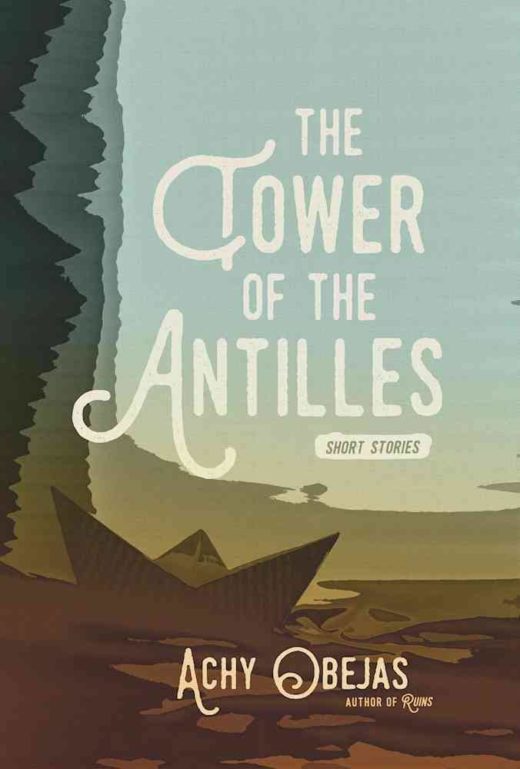- Midnight Thrift

- A New Day Has Come: A Review of Radical Hope: Letters of Love and Dissent in Dangerous Times
Aquí y Allá: The Tower of the Antilles by Achy Obejas
Christopher R. Alonso

The collection is framed by two stories opening with the same line: “What is your name?” In both “The Collector,” and the final, title story, “The Tower of the Antilles,” Obejas juxtaposes a Cuban man with the arrival of Columbus describing encounters with the natives he found in Cuba. The author’s language in these two stories is different from the others, the prose more lush and flitting, with a sense of heightened reality. In a scene in which the Columbus character sits across the islanders, trying to explain his plans for a looming tower that will display their water crafts, Obejas writes: “The good citizens had grown used to his pleas. They would listen politely then shake their heads. These are ghost tales, they’d say. Phantom rafts.”
In “Kimberle,” originally written in Spanish and translated by Obejas, herself an acclaimed translator, a college student must navigate the odd spaces and situations her roommate, Kimberle, puts her in while the threat of a serial killer in the community looms over the story. Kimberle is a bit unhinged; she lies about stealing from the narrator’s prized book collection, threatens to harm herself, brings home women and invites the narrator to join them. Eventually, the narrator begins to feel attracted to Kimberle’s disruptive force—“The blanket scratched my skin, the walls whined. Trembling there in the dark, I wanted to kiss Kimberle—not for anyone else’s pleasure but my own.”—culminating in the final scene in which a loss of control leads to a literal car crash and multiple revelations.
Obejas writes strikingly about an ordinary occurrence in order to unlock intimate moments between characters, each with a unique relationship to the island. In “Exile,” narrated in a first-person plural, a chorus of voices recounts the voyage from Cuba to Miami. The voices say, “We explain that where we come from the greatest achievement is to leave.” Cuba, though never mentioned in the story, is a haunting presence, sitting heavy like humid summer air.
In “Waters,” my favorite of the stories, a queer poet travels to Cuba from New York and stays with an occasional lover. While on the island, she brushes up against people that have made their lives there, like another poet who says, “We must create a place for poets like you, who write in English…A Cuban, of course, yet different.” This moment speaks to the generation of Cubans born after the mass exile. They can identify as Cuban, but those born elsewhere are not like those born in Cuba and like those who stayed. The two poets discuss language, and the Cuban poets asks the narrator what language she dreams in, to which she replies, “It depends. I don’t always recognize the language in my dreams.”
These stories are filled with yearning for an unattainable place, something characters desire yet can never quite grasp—whether they’ve left the island or not. These tales are both nostalgic and entirely new. Obejas sneaks under the skin, revealing emotions tied up at the dock, cuts the rope, and sets them free. The Tower of the Antilles proves, once again, why Achy Obejas is one of the most important Cuban writers of our time.
Christopher R. Alonso was born in Miami to a family of Cuban exiles. He is a current MFA student at the NEOMFA program and the fiction editor for Jenny Magazine.









